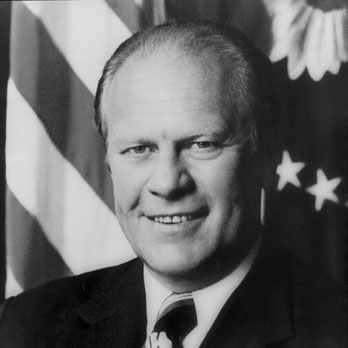 |
|||
 |
|||
• Increased US aid and loans to Chilean dictator Augusto Pinochet. More than 20,000 Chileans lost their lives under the brutal Pinochet dictatorship. At the height of violence in Chile, Ford’s Secretary of State Henry Kissinger famously remarked to Pinochet, "we are sympathetic to what you are trying to do here." Ford, like Nixon before him, endorsed US military and CIA facilitated activities such as Operation Condor, a now infamous secret project, in which the security services of Chile, Uruguay, Brazil, Bolivia, Paraguay and Argentina worked together to kidnap and murder political opponents across national borders. The right-wing military governments involved in Operation Condor, led by dictators such as Videla, Pinochet and Stroessner, agreed to cooperate in sending teams throughout the world, including France, Portugal and the United States, to locate, observe and assassinate opponents. They also exchanged cruel torture techniques like near drowning and playing sound recordings of torture sessions to torture victim’s families. While Washington referred to this kind of brutality as “counterterrorism”, Operation Condor’s targets were officially the “terrorists” of the leftist guerillas. True to form, US foreign policy encouraged security forces throughout Latin America to classify and target persons on the basis of their political ideas rather than illegal acts. The regimes hunted down dissidents and leftists, union and peasant leaders, priests and nuns, intellectuals, students and teachers - not only guerrillas, who, under international law, are also entitled to due process. In 1976, President Ford issued an executive order prohibiting assassination by any government employee of the US. Although future presidents officially upheld the order, it has failed miserably in practice. • Offered advance approval and supplied arms for Indonesia's brutal invasion and subsequent genocide of the Timorese people. The invasion, originally scheduled for early December, was apparently delayed by the visit of Ford and Kissinger who gave the green light for the invasion and subsequent massive war crimes, while attending a state dinner, held in their honor, with President Suharto. Operation Komodo, a general invasion of East Timor, commenced within twenty-four hours after Ford and Kissinger boarded a plane to return to the US. an estimated 30,000 Indonesian troops were deployed to the small island nation that had only recently gained independence from Portuguese colonial rule. Napalm, phosphorus bombs and chemical defoliants were delivered from US supplied planes and helicopters in what would become the first step in one of the most horrific genocides in history. While casualty estimates vary, anywhere from 60,000-100,000 Timorese were probably killed in the first year after the violence began in 1975. In 1979, the US Agency for International Development estimated that 300,000 East Timorese - nearly half the population - had been uprooted and moved into camps controlled by Indonesian armed forces. Not only had Ford given approval for the invasion of East Timor, but also pledged a substantial increase in US military aid to Indonesia for the following year. US arms sales to Indonesia more than quadrupled from 1974 to 1975 from $12 million to more than $65 million, while US military aid to Jakarta more than doubled from 1974 to 1976, from $17 million to $40 million. In 1977, Congressional hearings before the House International Relations Committee confirmed that several major US weapons systems sold to Jakarta during this period were directly used in Indonesia’s occupation and genocide in East Timor. Although US arms sales leveled off for the last two years of the Ford Administration, a pattern of US military support for the Indonesian dictatorship, whenever needed, was firmly established under Ford and devoutly followed by future US presidents. In 1995, a senior official of the Clinton administration, speaking of Suharto, said: “He’s our kind of guy.” Four years later US support continued during a period of extensive massacres of pro-independence Timorese by Indonesian soldiers and their militia allies. • Escalated US intervention in Angolan politics by pairing up with China and South Africa on one side of a horribly bloody civil war that dragged on for decades costing perhaps 500,000 lives. Ford also supported numerous US tactics to defeat Jamaica’s Prime Minister Michael Manley’s bid for reelection, who had lined up on the apparent wrong side of the Angolan civil war, as well as standing up to the transnational aluminum companies.
|
|||
|
|||